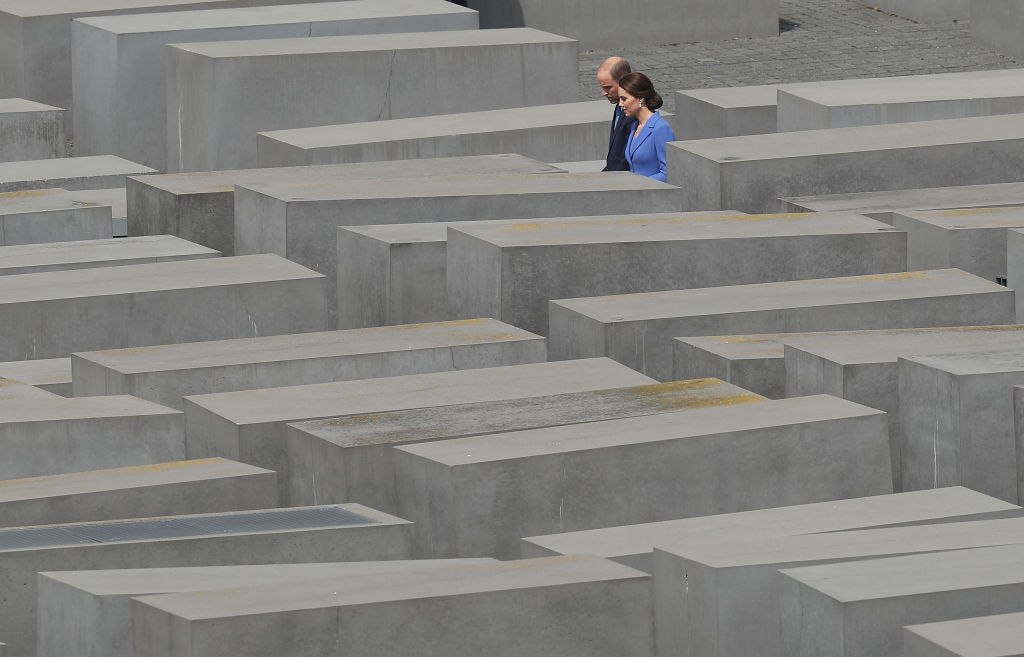Remembering the Holocaust is about remembering the price of indifference

On Holocaust Memorial Day, the price paid for indifference to suffering is heavy in our hearts, but acknowledging it can help us tackle modern crimes such as those against the Uighur Muslims in China, writes Olivia Marks-Wolman.
What’s the answer to indifference?
“I believe that a person who is indifferent to the suffering of others is complicit in the crime. And that I cannot allow, at least not for myself.”
These words were spoken by Holocaust survivor Elie Wiesel. As millions of Jews endured unimaginable cruelty at the hands of the Nazis, he was dismayed and distressed by the silence and apathy of bystanders. He struggled to understand how anyone could remain silent in the face of such evil. Wiesel, who was awarded the Nobel Peace Prize in 1986, came to this conclusion after reflecting upon his experiences in concentration camps. I agree with him wholly: one of the great lessons of the Holocaust is that indifference comes with a terrible price.
Before his death in 2016, Elie also said: ‘Neutrality helps the oppressor, never the victim. Silence encourages the tormentor, never the tormented.’ These words reflected his deep conviction that a shrug of the shoulders is no way to respond to the wrongs being done to others. It has been said that “all that is necessary for evil to triumph is for good men to do nothing.” There is a lot of truth in this statement. Might the Holocaust have been prevented had the desperate pleas of victims not fallen mostly on deaf ears?
In a highly individualistic culture such as ours, indifference is the easy option, particularly when those suffering seem a bit removed from our own circumstances – perhaps when people targeted are of a different colour, religion, or language. There is so much desperation and suffering all around us, but many people choose to look the other way and say, “It’s not my problem.” We see people up and down the country being abused because of the colour of their skin, religious beliefs, or sexuality. Yet many who witness these abuses do nothing, somehow convinced that it is not their responsibility to act.
Indifference is often the result of our busy lives with many people finding themselves in a whirlwind of activities – from working multiple jobs to make ends meet to caring for young children at home or elderly relatives. In fact, there never seems to be enough time to accomplish all the things we would want to.
One major drawback of this chronic business is we find ourselves too rushed to notice when others suffer, or when their human rights are trampled upon. Our lives may be too hectic to show warmth and compassion. It is tempting to say we each have enough personal problems to deal with, much less other people’s; and some find it too much of an ask to risk their personal safety and comfort in order to help a stranger.
Failure to show concern for people at the receiving end of prejudice often comes with a terrible price for us all: instability, great suffering, and loss of life. We also know that many people take no action not because of indifference, but because they feel impotent, powerless to help. This is particularly the case in the face of deep-rooted prejudices or big global challenges as the persecution of Uighur Muslims in China.
But to borrow a popular marketing slogan, “Every little helps”. In other words, small actions do make a difference. Sometimes a big difference. Take the case of John Hajdu, for instance, the Holocaust survivor who was saved by a non-Jewish neighbour who hid him in a cupboard – at great risk to his own life. Or the ordinary French police officer who tipped off Joan Salter’s mother that a Nazi raid was imminent – and the family escaped in the dead of night.
On a much bigger scale, there is the rescue operation carried out by Sir Nicholas Winton and his colleagues on the eve of the Second World War. He brought 669 mostly Jewish children to Britain from Czechoslovakia as the Nazis tightened their grip around the country. As we mark Holocaust Memorial Day, let us all be inspired by the words of Sir Nicholas’ daughter Barbara who summed up her father’s attitude thus: “Just because we can’t help everybody doesn’t mean we shouldn’t help somebody.”
For all the latest Lifestyle News Click Here
For the latest news and updates, follow us on Google News.

